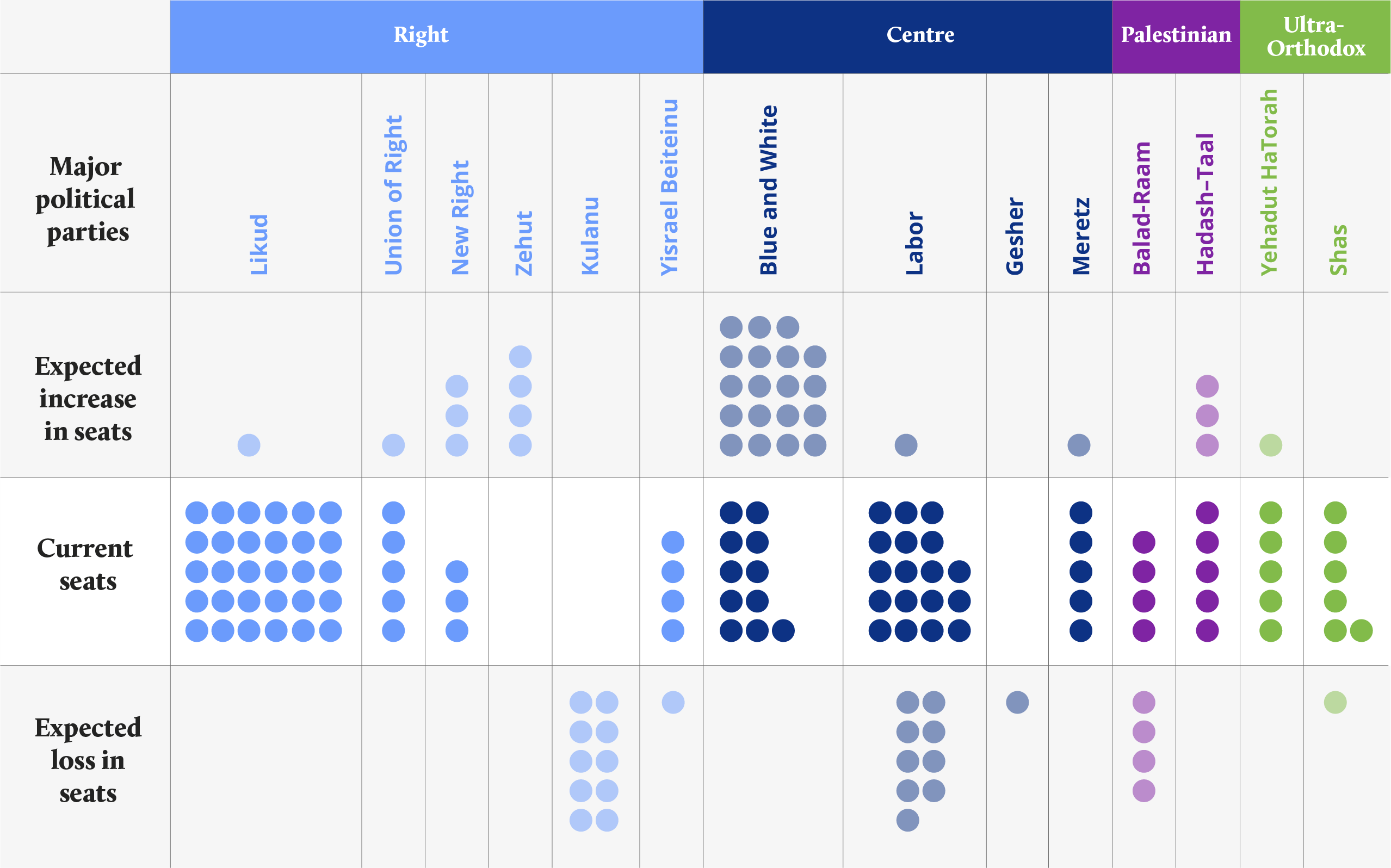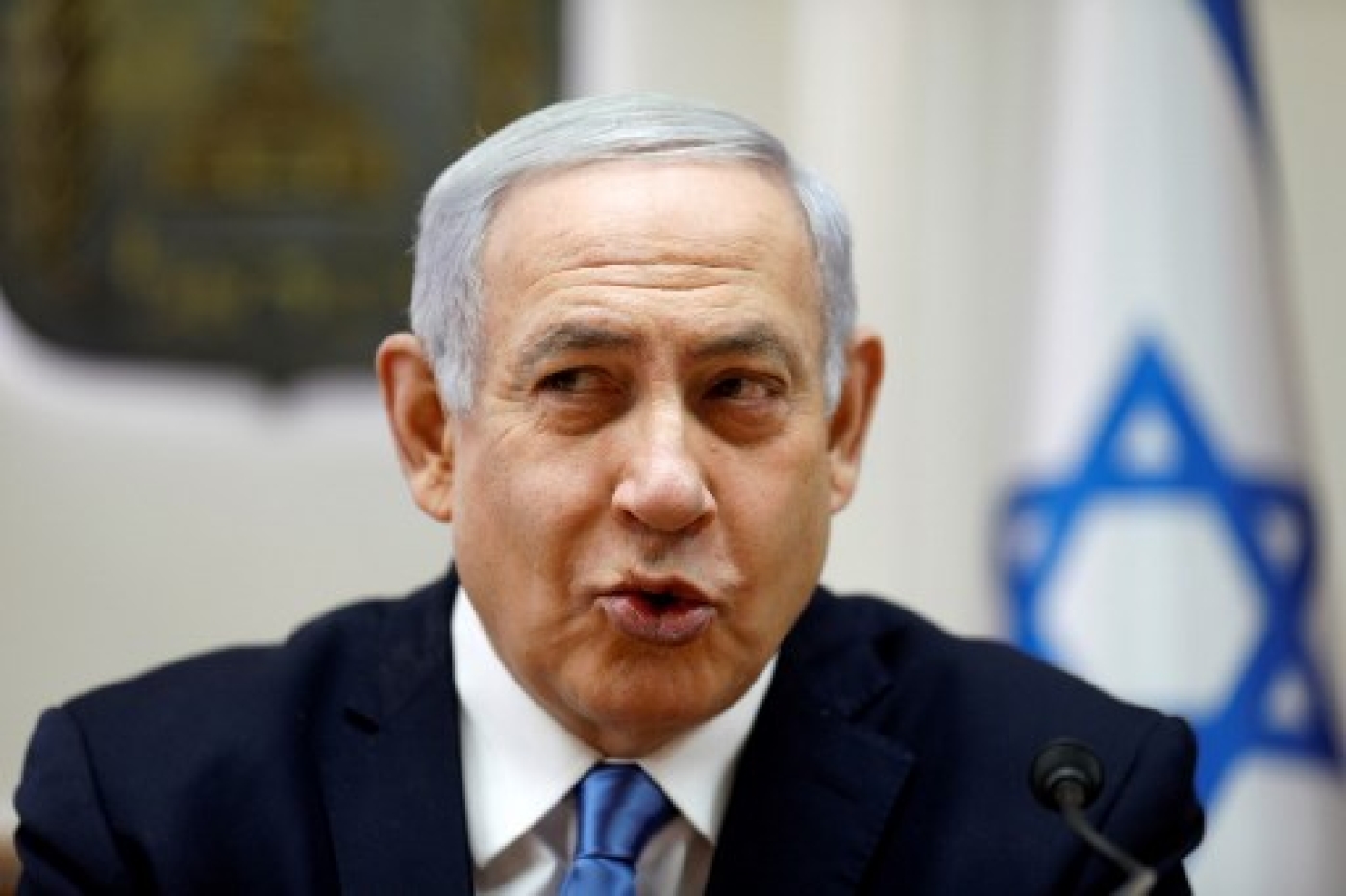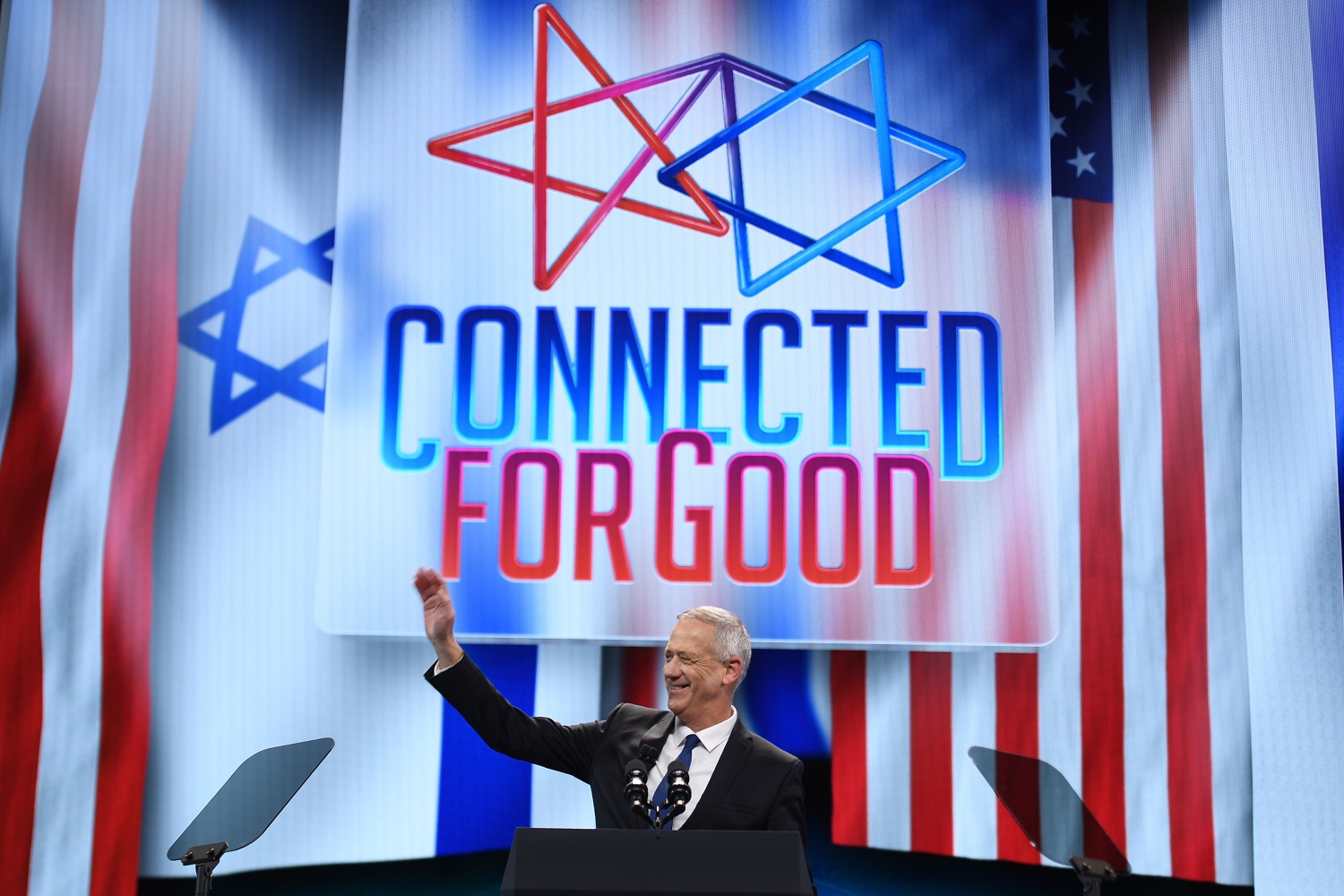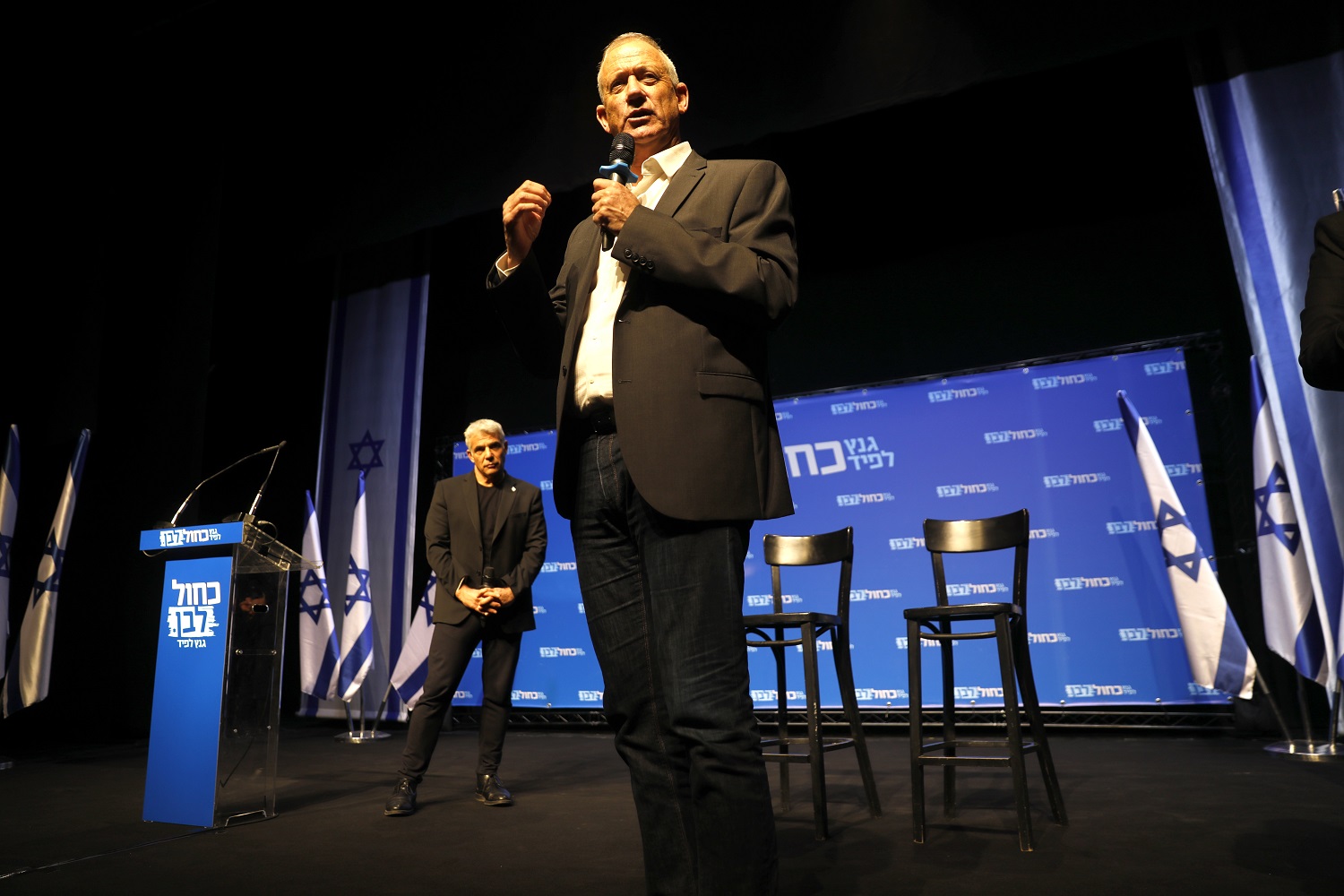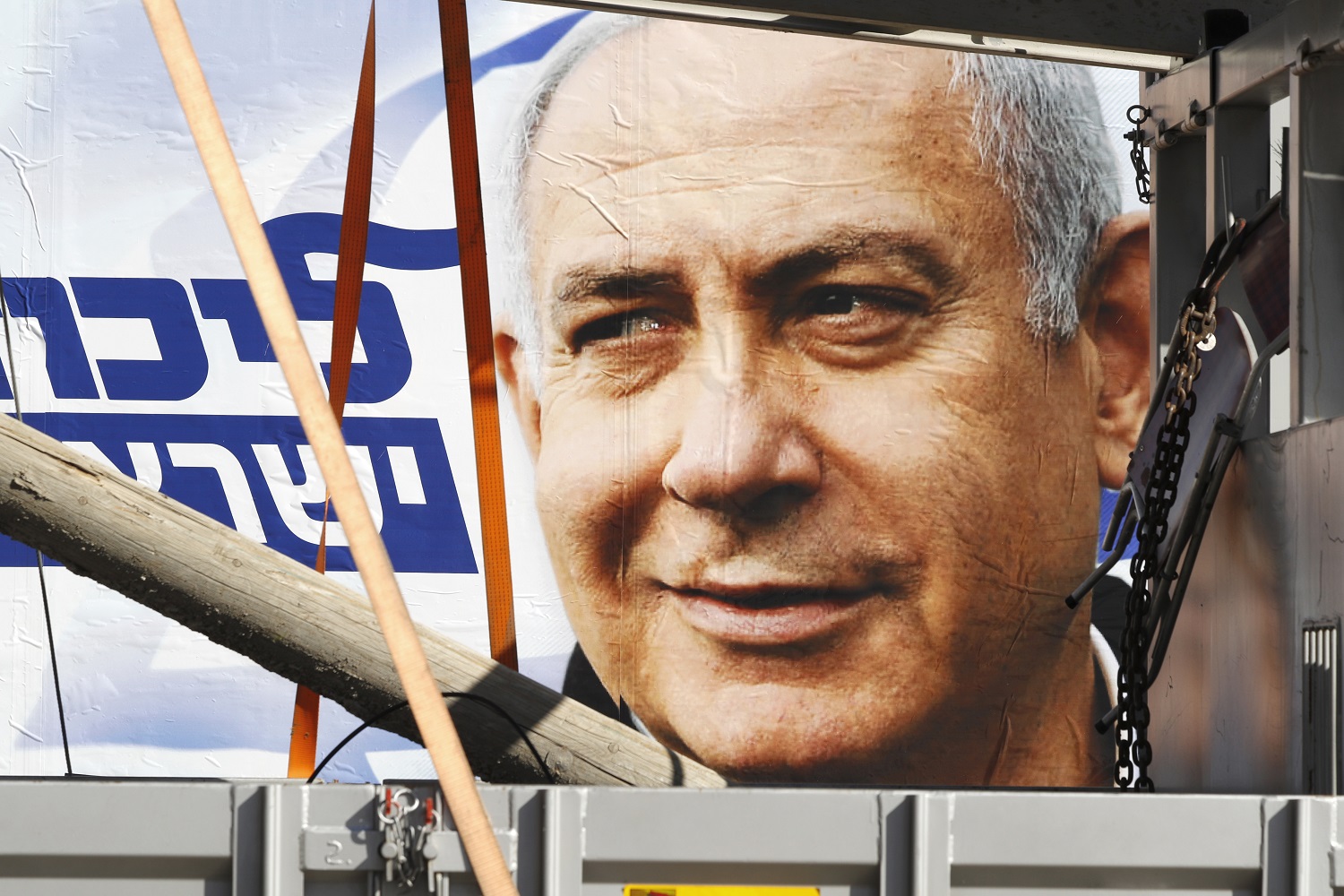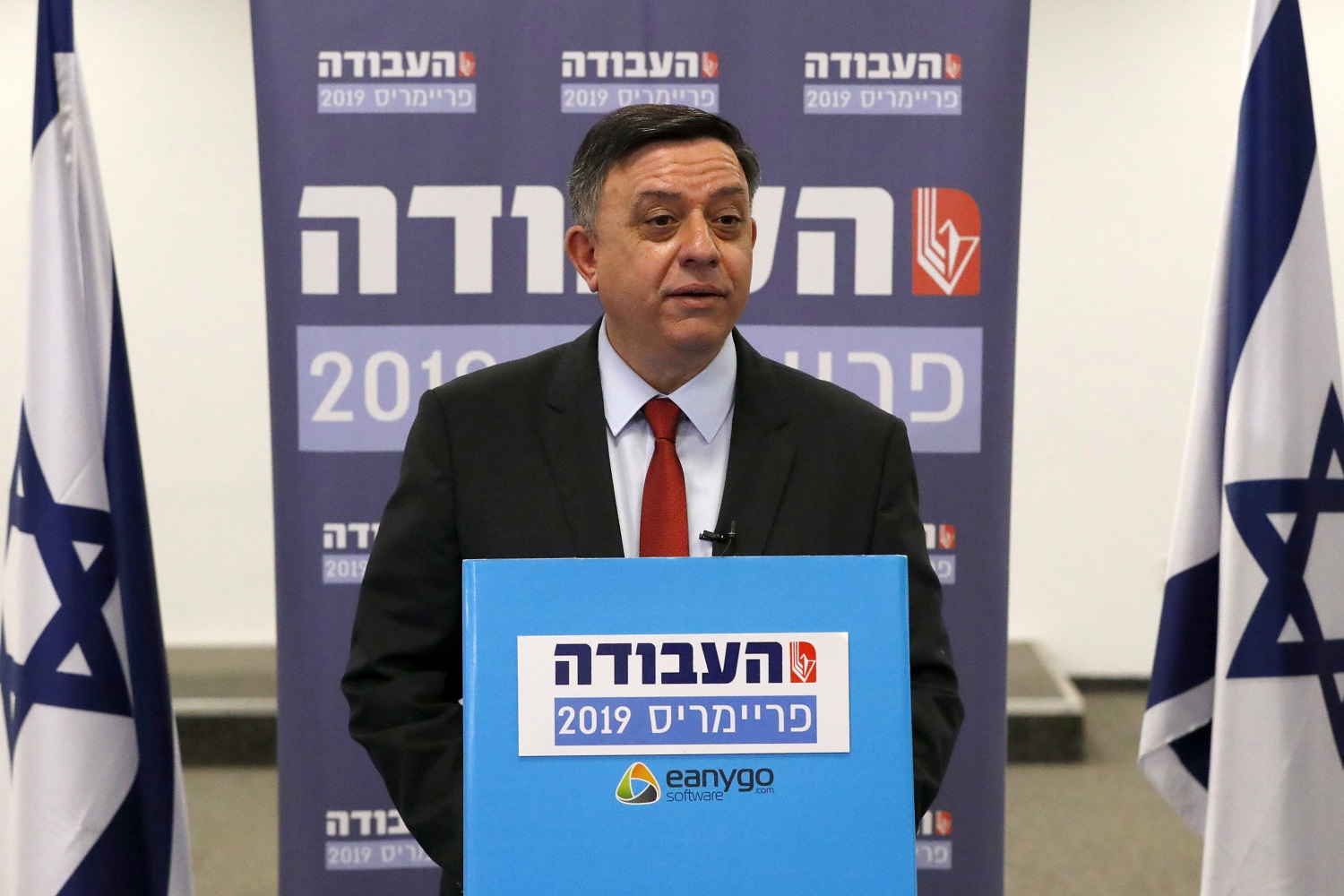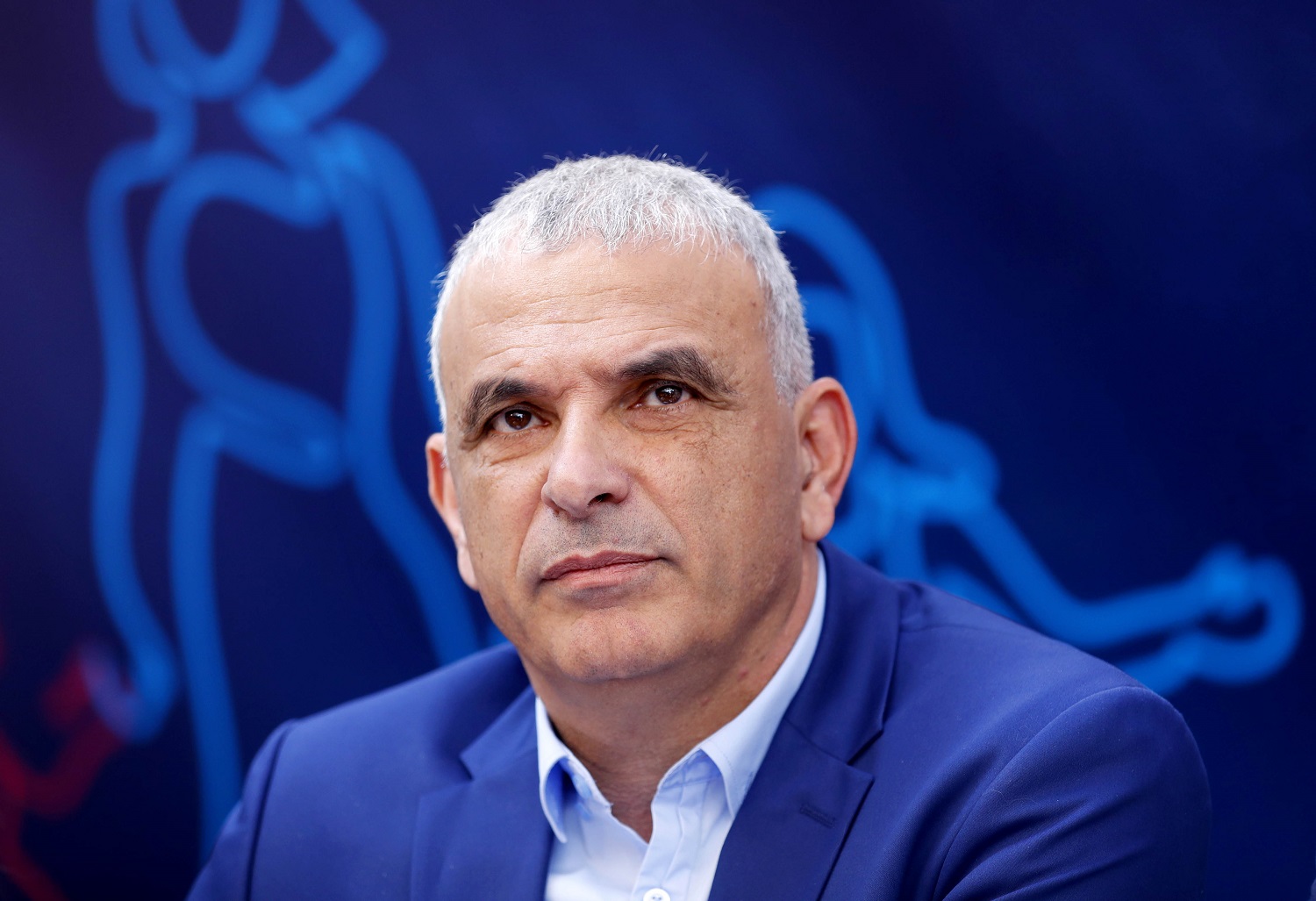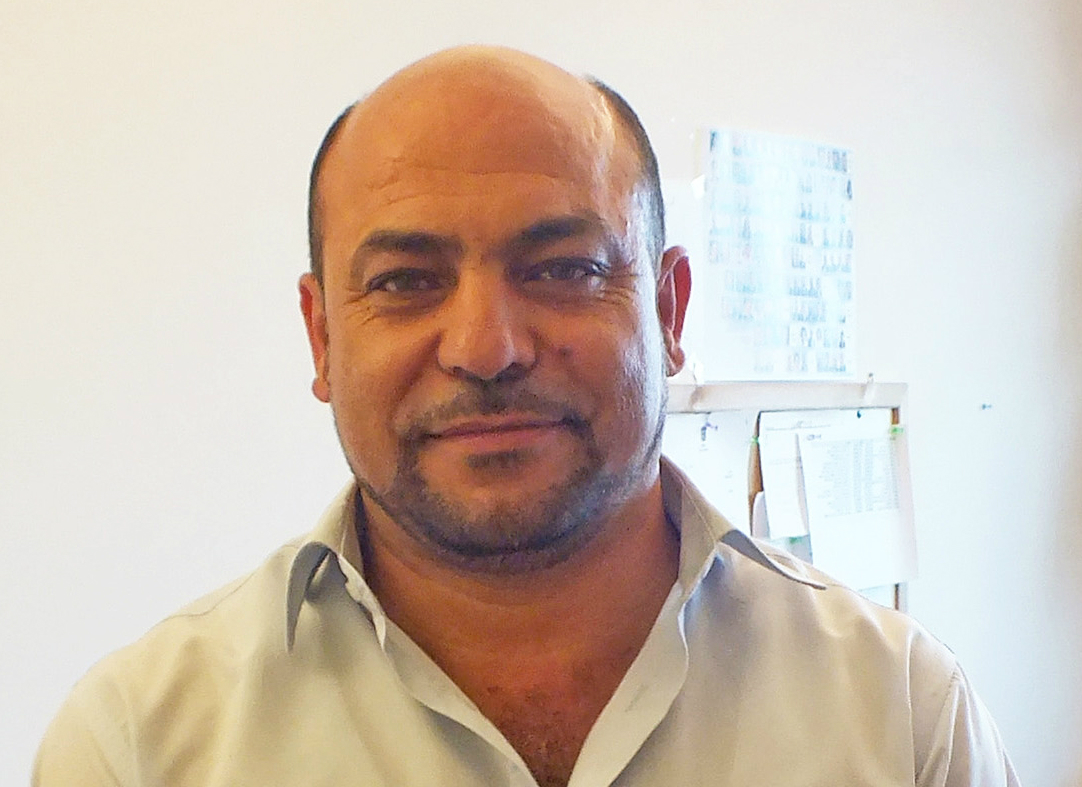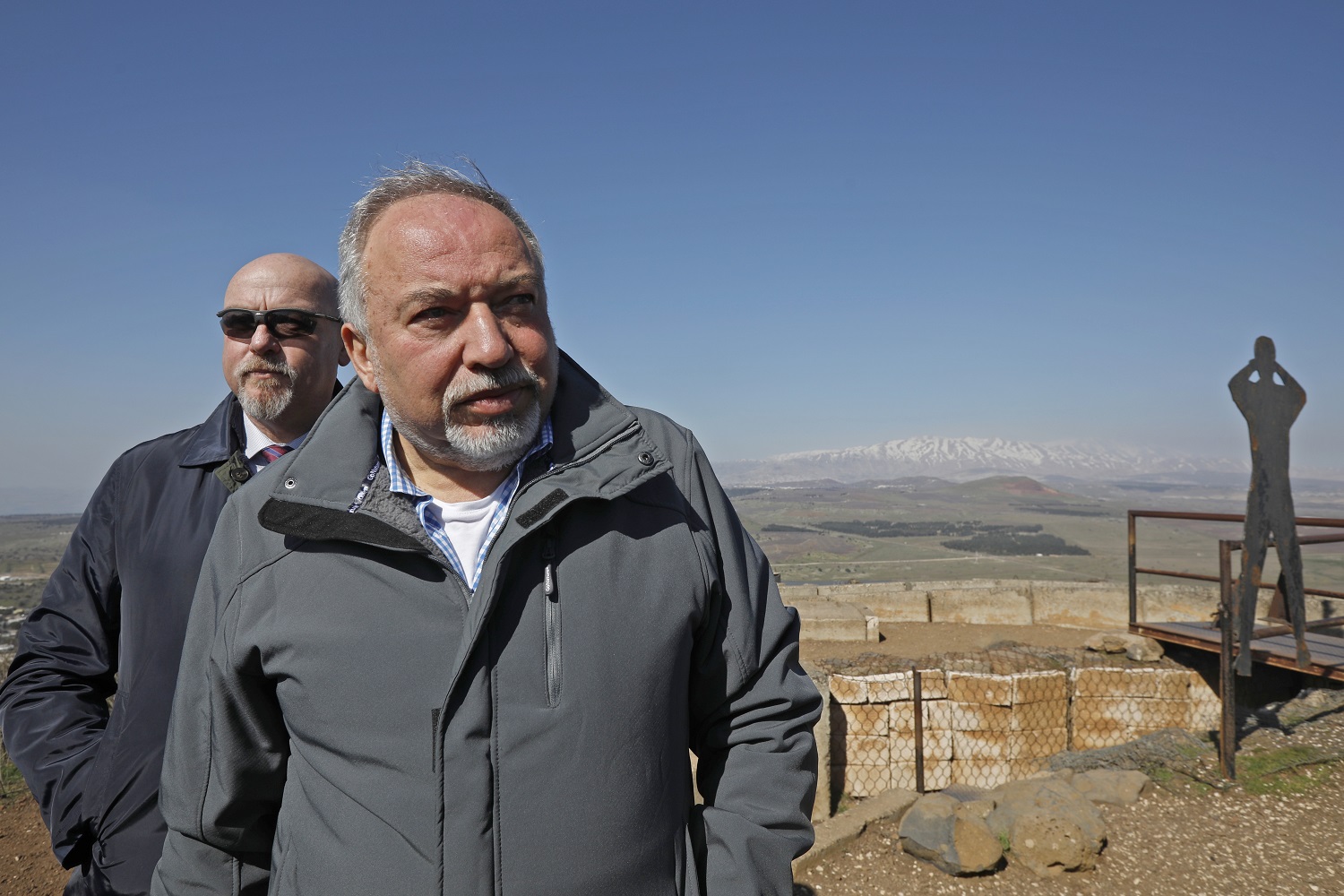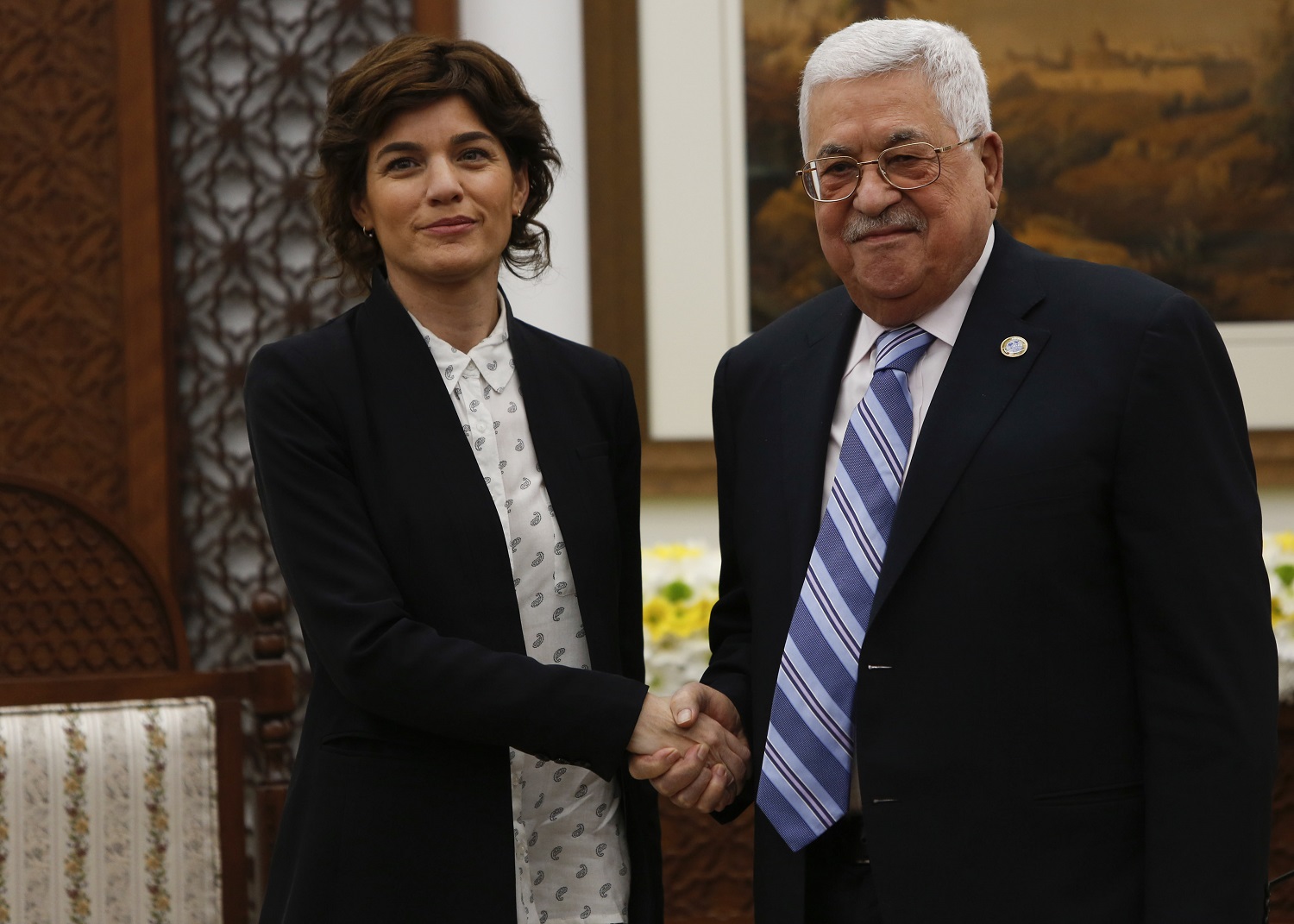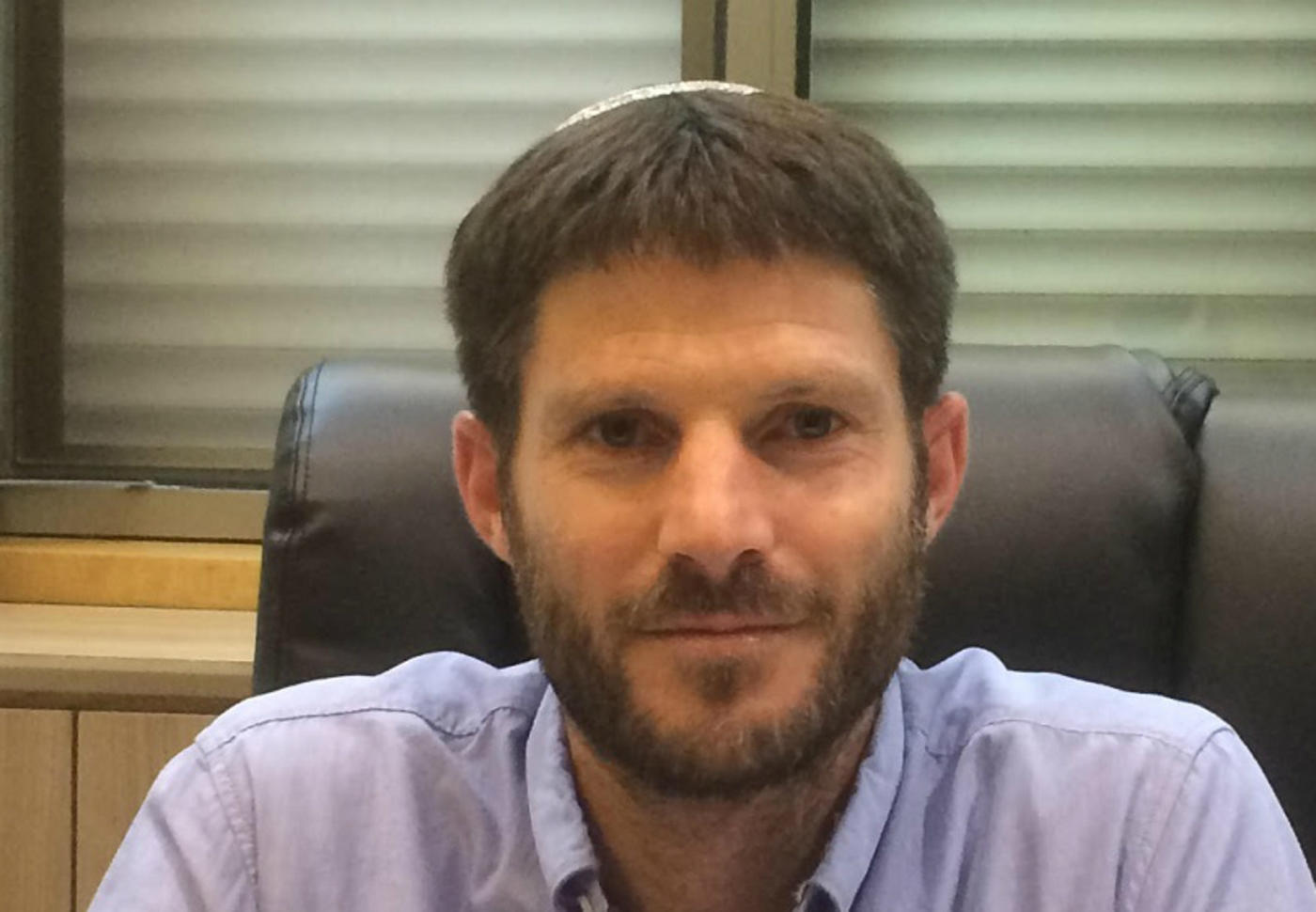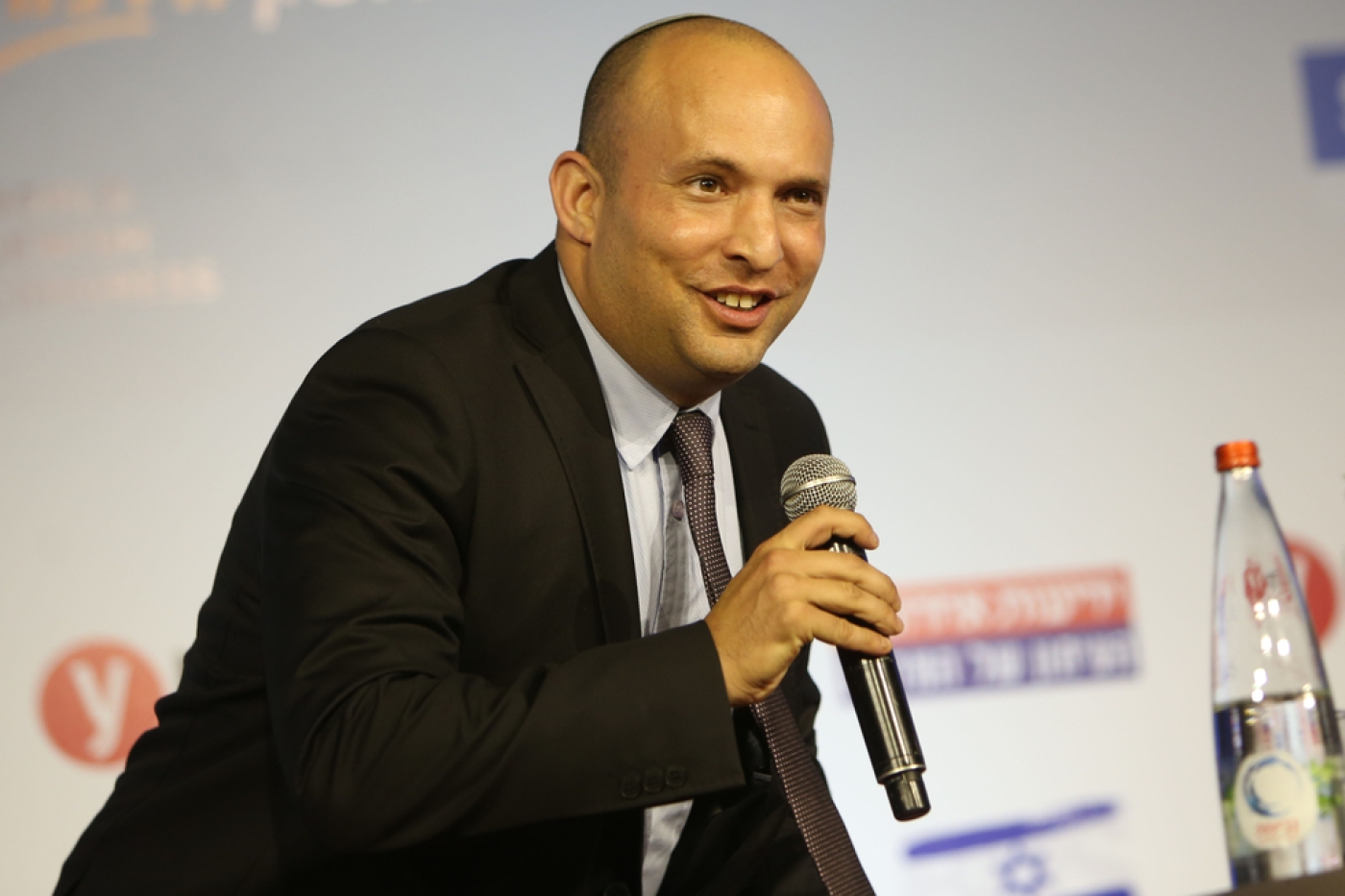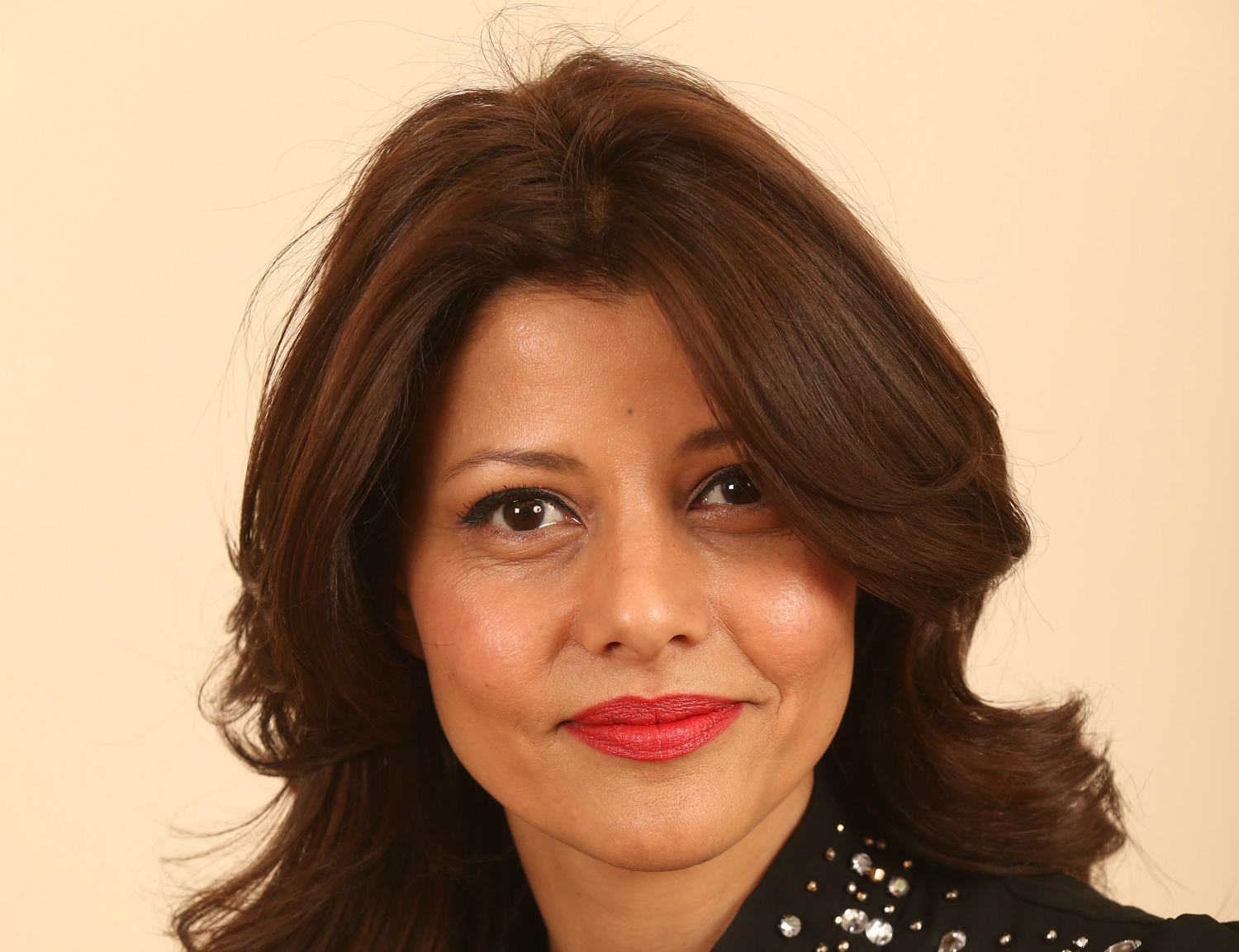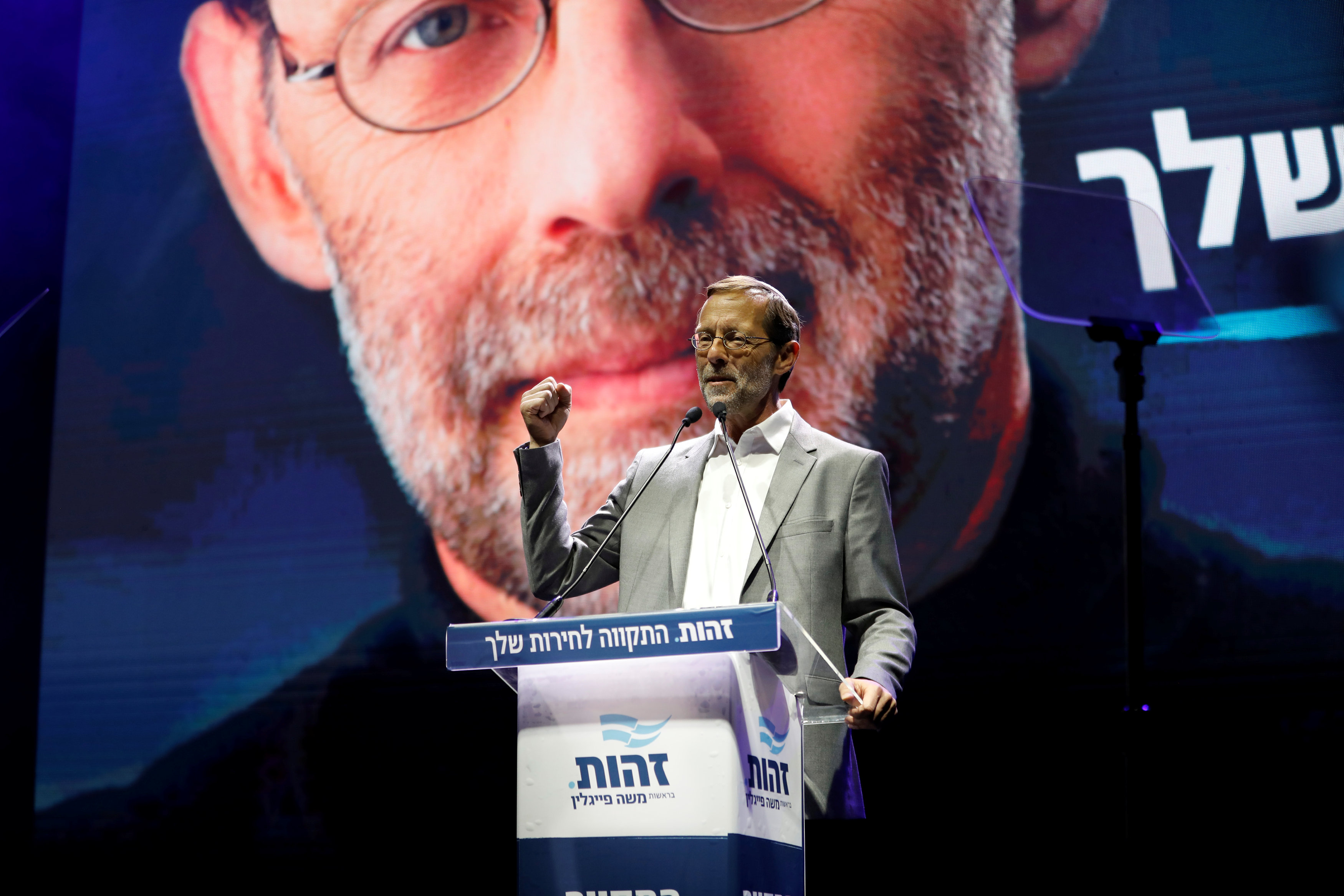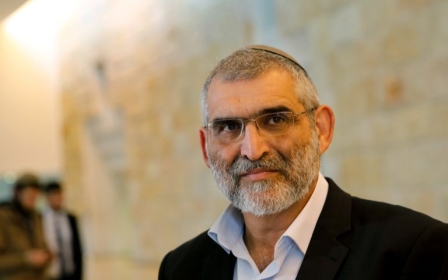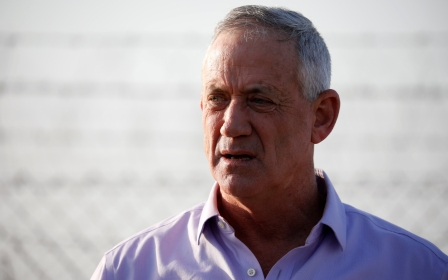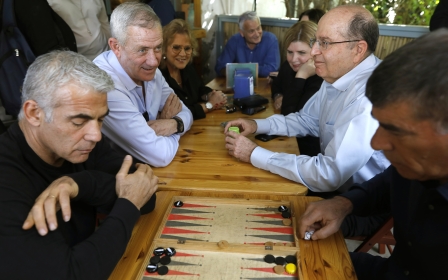Israel elections 2019: The parties and candidates for PM
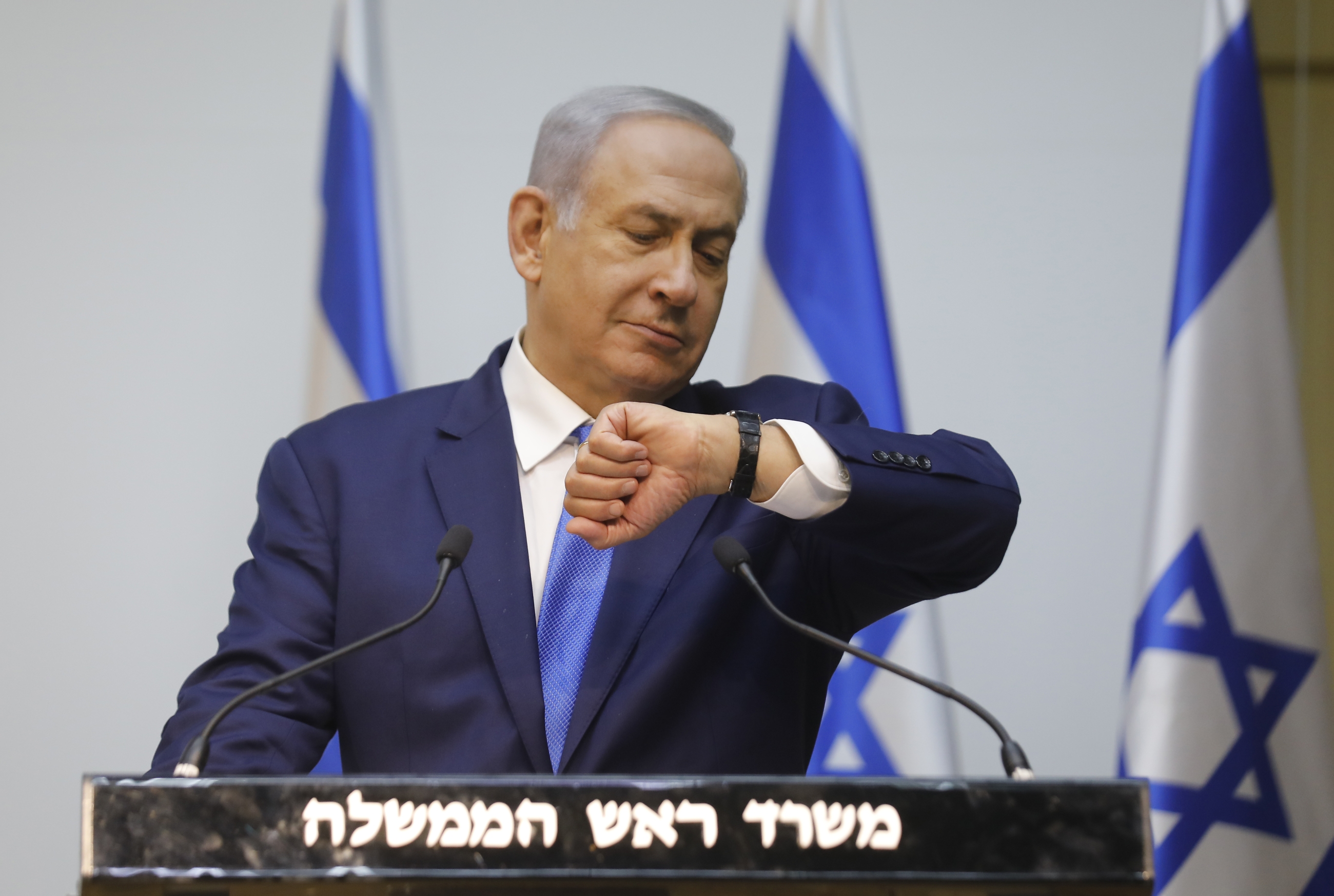
Israelis will head to the polls on 9 April to elect candidates to its 120-seat parliament, the Knesset. It will be the second election in just four years, after under-pressure Prime Minister Benjamin Netanyahu called early polls.
Voters will vote for parties, not individual candidates; the more votes a party gets, the more Knesset seats.
Since no single party has ever captured more than the 60-seat threshold to form a government on its own, coalitions are an established part of political life. This makes Israel’s election a free for all, with some 47 parties competing this year alone. Parties must receive at least 3.25 percent of the popular vote in order to gain a seat in the Knesset.
After the election, Israel’s president will consult with party leaders to determine which coalition is most likely to form a stable government.
New MEE newsletter: Jerusalem Dispatch
Sign up to get the latest insights and analysis on Israel-Palestine, alongside Turkey Unpacked and other MEE newsletters
The president will also nominate the prime minister, who is usually the head of the party that won the most seats.
Here's a rundown of the major players in this year's elections, from the frontrunners for the premiership to the parties that could play kingmaker.
Prime ministerial challengers
Benjamin Netanyahu
Likud party leader, prime minister
Netanyahu entered politics as an Israeli diplomat in Washington, and is now the second-longest serving prime minister in Israeli history, with 13 years in two stints under his belt.
Many commentators believe his call for early elections to be an attempt to sidestep a scandal that has erupted over multiple corruption charges being investigated by Israel’s attorney general.
His current cabinet is the most right wing in Israeli history, and Netanyahu continues to controversially court the extreme religious right.
If he's elected - which could be with close ally Donald Trump's help - the establishment of a Palestinian state will appear an even more distant prospect.
Normalisation with some Arab countries, however, could be on the cards, as he continues to court Gulf states like Saudi Arabia, the UAE and Oman.
Benny Gantz
Blue & White party co-leader, former army chief of staff
Gantz has no civilian political experience, but in a country where military service is highly regarded, his history as Israeli army chief of staff counts for much.
Seen as Netanyahu’s chief contender, he has vowed to unite Israeli society, which he says is divided along religious, political and ethnic lines. Unsurprisingly for a military man, he has placed an emphasis on security.
Scandal could be around the corner, however. Reports have emerged that Gantz's phone was hacked, and some are predicting an information dump ahead of the election. The ex-military chief has allegedly said he suspects either Netanyahu or Iran of being behind the hack.
Yair Lapid
Blue & White party co-leader, MK and former finance minister
Lapid is a journalist who rose to prominence off the back of occupy-style cost-of-living protests in 2011. He channelled much of the middle-class angst that animated those protests into a run for parliament two years later, with his Yesh Atid party becoming the second-largest faction in its very first run for the Knesset.
Lapid, who has previously served as finance minister in a Netanyahu coalition government, has vowed to put the middle class at the centre of economic activity and favours resumption of negotiations with the Palestinians Authority.
Lapid and Gantz have agreed to take turns serving as prime minister if Blue and White win the election.
Major political parties
Likud
-
Current seats: 30
-
Leader: Benjamin Netanyahu (prime minister 1996-9, 2009 - present)
Since its landslide election victory in 1977 where it became the first-right wing party to lead the government, Likud has gone on to produce most of the country’s prime ministers. The standard bearer of the Israeli right, the party opposes a Palestinian state, supports settlement building and encourages privatisation in the economy.
After winning 30 seats in the last election, Likud formed a coalition with smaller right-wing and religious parties.
Pollsters expect the party to increase its share to 31 seats.
Labor (Hebrew: HaAvoda)
-
Current seats: 18
-
Leader: Avi Gabbay (environmental protection minister 2015-16)
One of only two parties still competing in Israeli politics that has produced prime ministers and led the government. Labor and its precursors dominated the country for its first three decades, establishing the infrastructure of the state, but earning the ire of some non-European Jews left out of its ranks.
Today its candidate slate is multi-ethnic, but its willingness to negotiate with Palestinian leaders, and a right-wing turn in Israeli politics, has made it increasingly unpopular.
Going into April’s election, the party says its wants to heal the ethnic divisions that have excluded portions of Israeli society, including a major socio-economic investment programme in Arab communities. It also plans to build 300,000 homes to help young people onto the property ladder and invest in renewable energy sources.
Pollsters expect its share of seats to drop from 19 to 9.
Blue and White
-
Current seats: 11
-
Factions: Israeli Resilience (Hosen L’Yisrael); Yesh Atid (English: There Is A Future)
-
Leaders: Benny Gantz (army chief of staff 2011-5); Yair Lapid (finance minister 2013-4)
Blue and White is a fusion between the centre-right parties Israeli Resilience and Yesh Atid that coalesced just hours before the official deadline to submit election lists, in an attempt to form a Knesset majority capable of ousting Netanyahu. It is expected to be the main challenger to Netanyahu, with polls predicting it to take about 30 seats. However, the vast majority of nationalist and religious-oriented Israeli parties have already announced that they will not sit in a government led by Gantz. Blue and White might find itself sidelined, even if it wins more parliamentary seats than any other party.
The party’s platform includes a retaining settlements in the West Bank and seeking closer ties with Israel’s Arab neighbours, as well as a willingness to enter negotiations with the Palestinians.
Polls suggest the party could win 30 Knesset seats.
Kulanu
-
Current seats: 10
-
Leader: Moshe Kahlon (former minister)
Kulanu was founded prior to the last national elections in 2015, running on the same ticket as Likud, with party founder Moshe Kahlon securing the finance ministry until 2017.
The party, called by ex-Likud minister Kahlon “the sane right-wing”, has focused on improving economic conditions – an issue too often neglected in a country with some of the highest poverty rates among developed nations. It also supports the two-state solution. But a number of delegates that entered the government four years ago have since left Kulanu, putting the party’s presence in the next Knesset in doubt.
Kulani is projected to receive less than the 3.5 percent electoral threshold needed to sit in the Knesset.
Balad-Raam
-
Current seats: 8
-
Factions: Balad (English: acronym for National Democratic Alliance); Raam (Hebrew: “Thunder”, acronym for United Arab List)
-
Leaders: Mtanes Shehadeh, Masud Ghanaim
As the main Palestinian parties, Balad and Raam can be categorised as representing nationalist-oriented and religious-oriented Arab voters, respectively. They are running together so as to not narrowly lose their Knesset seats, but unlike in the last elections, they are running as separate to Hadash-Taal (see below).
In 2015, the various factions representing Palestinian citizens of Israel ran together on the Joint List ticket, to avoid the possibility of being shut out of the Knesset altogether.
Defending the interests of the Palestinian minority in Israel has meant that the Knesset voting records of all parties representing it have historically been almost identical.
Projections say that the faction is expected to win four Knesset seats, half the amount it has currently.
Shas
-
Current seats: 7
-
Leader: Ariye Deri (interior minister 2016 - present)
Shas entered the Knesset for the first time in the mid-1980s, promising to earn respect – and state funds – for Jews of Middle Eastern and North African descent, the Mizrahi, a group that has historically suffered discrimination.
The party advocates for a state run according to Jewish law and is part of the Baal Teshuva movement, promoting an Ultra-Orthodox way of life.
While previously taking a more moderate position with regards to Palestinians, the party has since moved rightwards and opposes any freeze in settlement building in the West Bank.
Shas is projected to take six seats in April's election.
Yisrael Beiteinu
-
Current seats: 5
-
Leader: Avigdor Liberman (defence minister 2016-18)
Led by hawkish settler and former defence minister Avigdor Lieberman, Yisrael Beiteinu has advocated hardline anti-Palestinian policies, but has also pushed for issues favoured by secular citizens, such as the adoption of civil marriage laws and expanding army conscription to include the Ultra-Orthodox.
The party was embroiled in a major corruption scandal in 2014 and has failed to see a favourable boost in the polls since Lieberman dramatically left Netanyahu’s government in November over the signing of a ceasefire with Hamas.
Pollsters predict that Yisrael Beiteinu’s seat number could drop from five to four.
Hadash-Taal
-
Current seats: 5
-
Factions: Hadash (English: “New”, acronym for Democratic Front for Peace and Equality), Taal (English: “Come”, acronym for Arab Movement for Renewal)
-
Leaders: Ayman Odeh, Ahmad Tibi
The smaller of the two Palestinian blocs combines the factions seen as slightly more palatable to Jewish voters on a single ticket: the socialist Arab-Jewish faction Hadash, led by Ayman Odeh, and Taal, led by Dr Ahmad Tibi, a former adviser to Yasser Arafat and the community’s most popular voice in parliament.
While the splintering of the Joint List is seen as weakening the Arab parties, party leaders believes that this new coalition could win over more Jewish voters than the Joint List did in the last election.
The party is expected to increase its number of seats from five to eight, according to the latest polling
Meretz
-
Current seats: 5
-
Leader: Tamar Zandberg (Tel Aviv city councillor 2008-2013)
A left-wing party that enjoyed some success in the '90s, Meretz advocates Israel’s withdrawal from territories it has occupied since 1967 and the establishment of a Palestinian state that would share Jerusalem as its capital.
With the collapse of the Oslo Accords and Israel’s shift rightward, the party’s popularity - alongside its ability to implement its progressive socio-political agenda - has fallen to half of what it was quarter-century ago.
The party goes into April’s election promising to reduce the cost of living for struggling Israelis, reform the tax system and fight corruption. The party has also vowed to stamp out racism, especially toward Palestinian citizens of Israel.
According to projections, Meretz is expected to increase from five to six its number of Knesset seats.
United Torah Judaism (Yehadut HaTorah)
-
Current seats: 5
-
Leaders: Yaakov Leitzman (health minister 2015 - present), Moshe Gafni (member of Knesset, 1988 - present)
UTJ is the oldest religious party in the Knesset, with its earliest incarnation competing for seats since Israel’s founding.
The party’s two factions, Agudat Yisrael and Degel HaTorah, have run for election on a joint all-male slate since 1992, and have been a junior member of most Israeli governments since that time, fighting for funds and working to promote Ultra-Orthodox influence in the state.
When it comes to foreign policy and security, UTJ determines its positions based on religious concerns, more than on political or security considerations, and has showed a willingness to join coalition governments that wish to engage in peace negotiations with the Palestinians.
The party is expected to increase its seat number from five to six.
Union of right-wing parties
-
Current seats: 5
-
Factions: Jewish Home (HaBayir HaYehudi); National Union (HaIchud HaLeumi); Jewish Power (Otzma Yehudit)
-
Leaders: Rafi Peretz (army chief rabbi 2010-2016), Bezalel Smotrich (Knesset deputy speaker 2015 - present), Michael Ben-Ari (member of Knesset 2009-13)
A union of right-wing to far-right religious parties formed this year and reportedly promised two cabinet posts by Netanyahu if he is re-elected.
The grouping has drawn condemnation from the likes of the US-based Anti-Defamation League for its inclusion of Otza Yehudit, or Jewish Power, which claims to be the ideological heir of Rabbi Meir Kahane, a notorious Jewish supremacist. Otza Yehudit leader Michael Ben Ari was banned from running by the Supreme Court over his overtly racist views.
The Union is projected to increase its number of seats from five to six.
The New Right (HaYamin HaChadash)
-
Current seats: 3
-
Leaders: Naftali Bennett (education minister 2015 - present), Ayelet Shaked (justice minister 2015 - present)
Formed in December 2018 by Education Minister Naftali Bennet and Justice Minister Ayelet Shaked, the New Right advocates for cooperation between religious and secular Jews, opposes the creation of a Palestinian state and promotes the annexation of Area C in the West Bank, where all Israeli settlements are located. The party is hoping to capture centre-right voters disillusioned with Likud.
Bennet, a software tycoon who led the Jewish Home party in the 2015 election but has since left, has spearheaded New Right party's campaign to limit the powers the Supreme Court exercises over soldiers, who he claims now think twice before carrying out operations for fear of prosecution.
The party is projected to double its number of seats from three to six.
Gesher
-
Current seats: 1
-
Leader: Orly Levy-Abekasis (member of Knesset 2015 - present)
Led by former model and television anchor Levy-Abekasis, who entered politics by fighting for the rights of economically underprivileged sectors of Jewish-Israeli society. In the current Knesset, she broke with the hawkish Yisrael Beiteinu party on whose slate she was voted in on, and in advance of the 2019 elections resuscitated Gesher, once the name of a faction led by her father David Levy, an ex-foreign minister.
Levy-Abekasis says she wants to break the “constant divide between right and left” and focus on social issues such as pensions, health, housing and strengthening small and medium-sized businesses.
Pollsters predict that Gesher is unlikely to make the 3.25 percent threshold required to gain a seat in the Knesset.
Zehut
-
Leader: Moshe Feiglin (former Knesset deputy speaker)
Founded by Moshe Feiglin, former Knesset deputy speaker, Zehut’s platform is centred around promoting individual liberty, the full annexation of the West Bank and the legalisation of cannabis, all contained within a 344-page manifesto.
Feiglin first came to prominence in 1993, heading a nationwide civil disobedience campaign protesting the Oslo Accords. His party, which has vowed to “end the persecution of cannabis users”, has already made a splash, with some analysts predicting that they could be kingmakers come April.
Despite not currently holding any seats, pollsters predict them to win four seats.
This article is available in French on Middle East Eye French edition.
Middle East Eye delivers independent and unrivalled coverage and analysis of the Middle East, North Africa and beyond. To learn more about republishing this content and the associated fees, please fill out this form. More about MEE can be found here.


